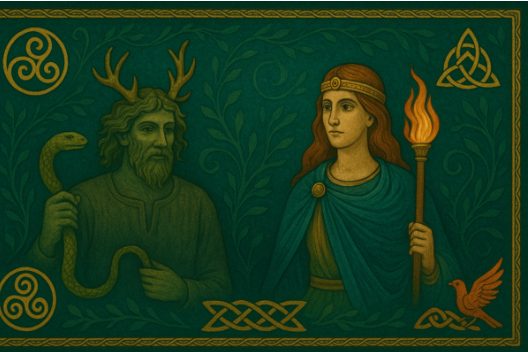with bestselling author and psychologist Sharon Blackie, MA, PhD, FRSA
Although many of the mythical beings in Celtic traditions – The Morrigan, Brigit, Lugh, Fionn Mac Cumhaill, the Tuatha Dé Danann and the fairy-folk – have long loomed large in the world’s imagination, the rich and complex context from which they spring is poorly known and often misunderstood. This Graduate Certificate in Celtic Mythology will provide an extensive and up-to-date introduction to the mythology and folk traditions of the ‘insular Celts’ – the inhabitants of the British Isles and Ireland. We’ll explore their relevance both to our lives today and to the practice of Depth Psychology.
We’ll delve into the most instructive and inspirational Irish and Welsh myths and their key actors, motifs and themes, and in the process we’ll examine the role of women, animals, kings and heroes, the land and the environment – and, most important of all, the pervasive influence of the Otherworld. We’ll consider the influence that the arrival of Christianity had on Celtic mythology, the relationship between the bards and the monks, and the ways in which the pagan and Christian religions intersected. In exploring the fundamental belief systems which underlie key threads of the Celtic tradition, we’ll also challenge some contemporary assumptions about what the Grail represents.
This program will be suitable both for clinicians and researchers who are interested in finding new mythological systems to draw on, and for individuals who are interested in deepening their knowledge of and personal work within the Celtic traditions.
Online 8-month course/ 8 CECs | February 11 – September 9, 2026, 8:00 – 9.30AM PT | There is no Required Reading for this program


